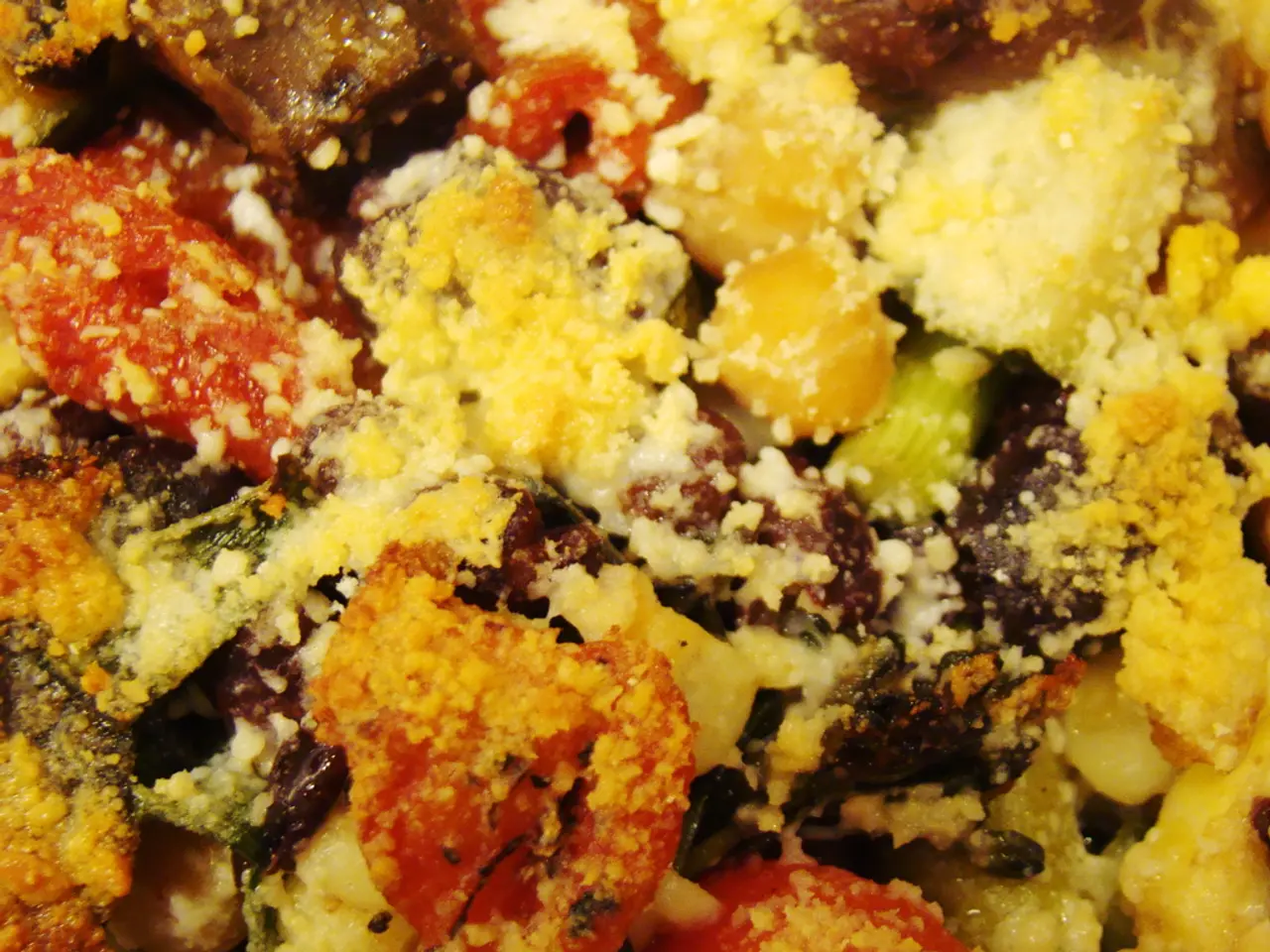Agriculture Minister Rainer continues to serve meat provisions
Germany's Agriculture Minister, Alois Rainer, has announced a shift in the food policy at official events held at the Federal Ministry of Agriculture. In a move that reflects a more inclusive approach, the ministry will now serve both vegetarian products, meat, and fish.
Minister Rainer, a CSU politician and a trained butcher, has expressed tolerance towards different dietary habits. He stated, "I understand the approach of those who choose to eat vegetarian or vegan, and I want to ensure that everyone feels welcome at our events."
This change in policy is a departure from the previous regulation introduced by Cem Özdemir, a Green Party politician. Under Özdemir's tenure, all food at official ministry events was required to be sourced from organic farming. However, exceptions were made for certain occasions, such as the open day and receptions during the Green Week.
Rainer's statement does not indicate any intention to reverse the policy of serving food sourced ideally from regional sources. He also made it clear that he respects the dietary choices of others, regardless of whether they choose to eat meat, fish, or vegetarian products.
The new policy aligns with the broader 2024 food strategy of the German government, which promotes eating colorfully, healthily, and sustainably with a focus on plant-based foods as recommended by the German Nutrition Society (DGE)[1]. The Ministry also encourages the inclusion of alternative protein sources such as plant-based, fermentation-based foods, and cultivated meat to support sustainability and health goals, as per recent scientific advisory reports[2].
Official events under Rainer's leadership are likely to follow guidelines consistent with the government's commitment to sustainability, public health, and environmental protection through diet. These include reducing reliance on animal-based products, increasing plant-based food offerings, and embracing innovative protein diversification, reflecting a shift towards sustainability and health promotion in line with Germany’s 2024 Food Strategy[1][2].
However, Minister Rainer has not directly addressed the meat-heavy eating habits of his party chairman Markus Söder in his statement about food choices. Nor has he mentioned any specific changes to the sourcing policy for food at official ministry events beyond allowing for a variety of dietary options.
Rainer's stance on food choices differs from his predecessor Cem Özdemir, who was a strong advocate for organic farming. The change in policy was announced in the "Bild" newspaper.
In summary, the current policy on food at official Federal Ministry of Agriculture events emphasizes healthful, sustainable, and plant-based choices reflecting the official nutrition strategy, with an openness toward novel sustainable protein sources introduced under Alois Rainer’s tenure. Minister Rainer does not intend to dictate the eating habits of others, as long as the food is tasty and fresh. He also does not intend to start a "culture war" over food choices, whether on plates or in refrigerators.
[1] German Nutrition Society (DGE) (2020). Guideline for the prevention of overweight and obesity in children, adolescents, and young adults. Nutrition. 62(4), 201-228. [2] European Commission (2019). Scientific Opinion on the environmental sustainability of plant-based diets. EFSA Journal. 17(1), 5503. [3] European Commission (2020). Proposal for a regulation of the European Parliament and of the Council on the common agricultural policy. Brussels, 9.12.2020 COM(2020) 816 final.
- The following shift in food policy at the Federal Ministry of Agriculture, under the leadership of Minister Alois Rainer, aligns with Germany's 2024 food strategy, promoting colorful, healthy, and sustainable eating patterns with a focus on plant-based foods, alternative protein sources, and an openness toward novel sustainable protein options.
- In line with the new policy, Minister Rainer's events will serve a variety of dietary options, including vegetarian, meat, and fish, reflecting the inclusion of diverse nutrition choices as per the recommendations of the German Nutrition Society (DGE) and recent scientific advisory reports.




